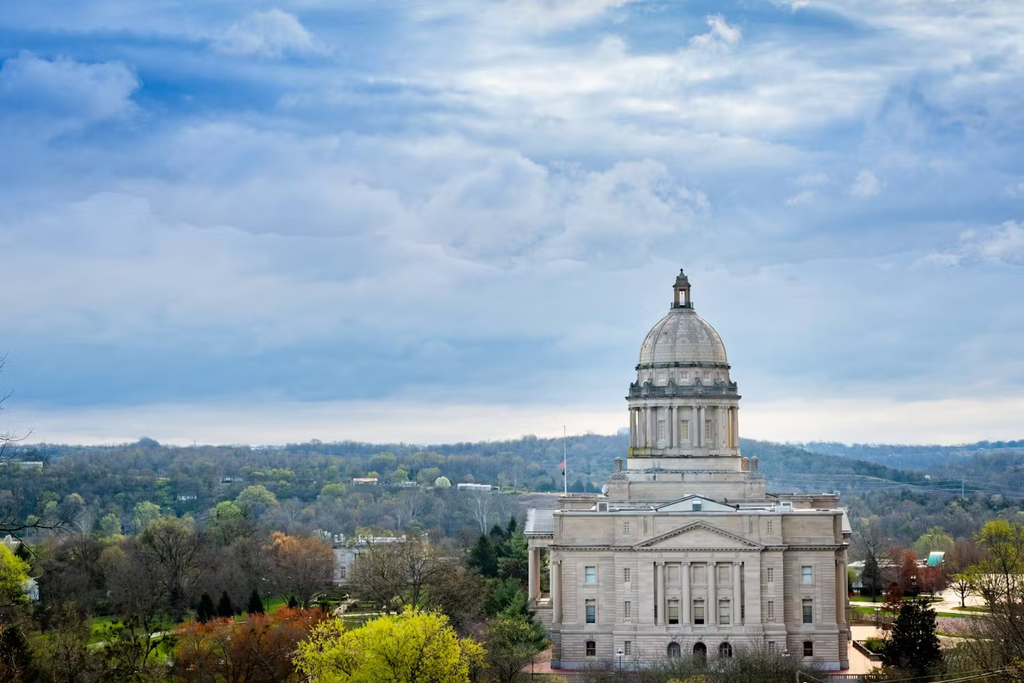
Vaping bills in Kentucky and Nebraska have been passed by lawmakers and are headed to state governors for signature or veto. In Georgia, a PMTA registry bill failed to pass before the legislature ended its session for the year.
In Kentucky, both houses of the General Assembly passed a typical PMTA registry bill, designed by the tobacco industry and promoted by its lobbyists. The Nebraska bill, despite being described by many as a registry bill, does not appear to include any PMTA-related requirements for products to be sold. It does, however, ban online sales.
The Consumer Advocates for Smoke-free Alternatives Association (CASAA) has modified (or will soon) its calls to action for Kentucky and Nebraska to give residents a simple way to contact governors Andy Beshear (KY) and Jim Pillen (NE) to urge a veto.
Kentucky legislators love Big Tobacco
On March 28, registry bill HB 11 easily passed both houses of the Kentucky General Assembly. The bill was created and lobbied for by Altria Group—the maker of Marlboro cigarettes and NJOY vapes. Altria has recently faced growing competition from disposable vapes.
Altria successfully stoked fears of Kentucky children being victimized by disposable “Chinese vapes,” despite the fact that Altria’s NJOY products are also made in China. The company hired former Kentucky Republican Party chairman John McCarthy as its lobbyist on the bill, according to the Kentucky Lantern. The bill and its senate companion were both introduced by Republican Assembly members, and in the end, Big Tobacco's support (which probably included campaign donations) won the day. The final votes were bipartisan and an overwhelming success for the cigarette manufacturer. Even if Governor Beshear vetoes the bill, it will only take a 51 percent Assembly majority to override the veto.
If Gov. Beshear signs HB 11 into law, it will take effect Jan. 1, 2025. The law bans sales of all vape products except those that have either have received FDA authorization, are still undergoing PMTA review by the FDA, are currently appealing a marketing denial order (MDO), or had the MDO stayed or reversed by the FDA or a court. The law would create a registry of retailers allowed to sell “authorized products.”
Nebraska lawmakers ban online vape sales
Nebraska bill LB 1204 passed March 28, and according to news stories, included the PMTA registry language from an earlier bill, LB 1296. However, after reading the bill that passed, it appears that LB 1204 kept everything from LB 1296 except the registry.
None of the language from LB 1296 is present that describes the creation of a registry, what qualifies a product to be included, the cost of listing products, or penalties for selling unlisted products. The bill does provide for certification of manufacturers selling vape products in the state, but there seems to be no specific requirements for a product to be sold.
The bill that passed does, however, include a ban of online vape sales, and prohibition of vape products and packaging depicting celebrities or “cartoon-like characters,” imitating trademarks of products “primarily marketed to minors,” and products “designed to disguise the fact that it is an electronic nicotine delivery system.”
Registry bills threaten other states
Nearly two dozen other states are currently debating similar PMTA registry (or directory) bills. The bills are written and promoted by tobacco giants Altria and R.J. Reynolds. PMTA registry laws limit legal sales to vape products authorized by the FDA (six authorized devices are currently available) and products with submitted premarket tobacco applications (PMTAs) still under review.
Governors in Florida and Virginia are currently deciding whether to sign or veto registry bills passed by their state legislatures. In Vermont, a flavor ban bill awaits the governor’s decision. Residents in all three states can use CASAA’s calls to action to ask their governors to veto these restrictive vape bills.
Laws establishing PMTA registries have already passed in Alabama, Louisiana, Oklahoma and Wisconsin, and Utah Gov. Spencer Cox signed a PMTA registry bill (and flavor ban) into law last week. The Utah law will take effect Jan. 1, 2025, and the Wisconsin law on July 1, 2025.
